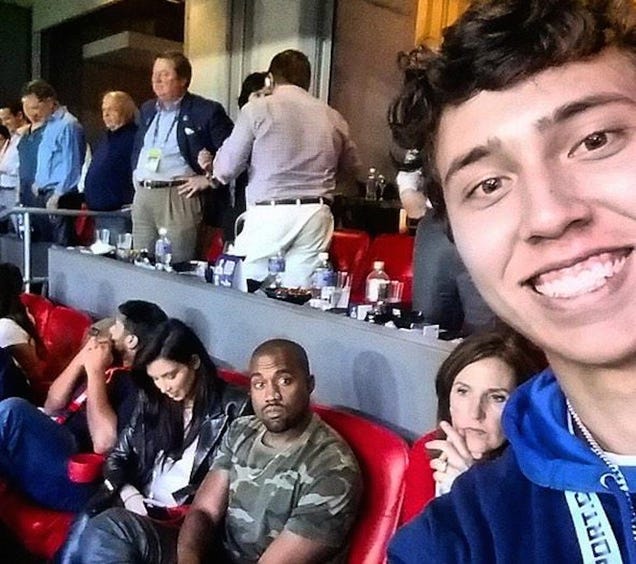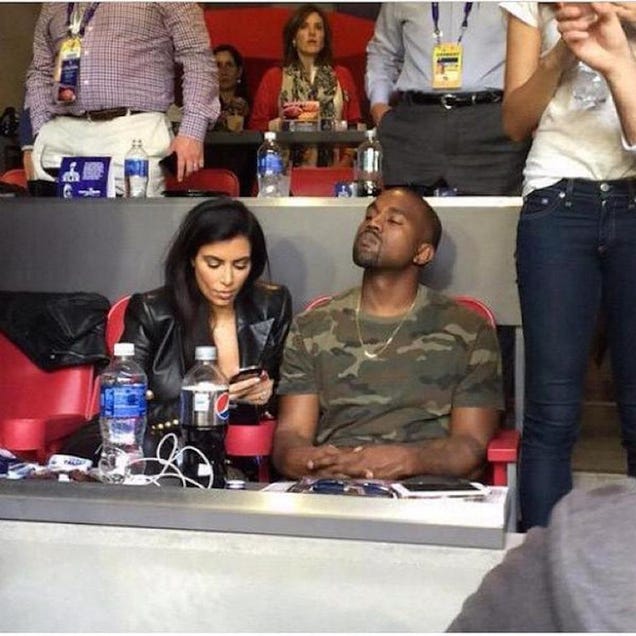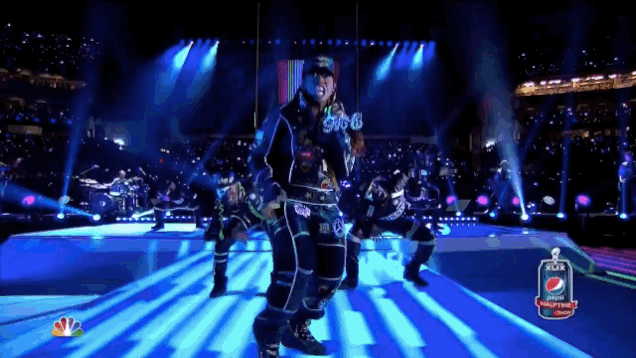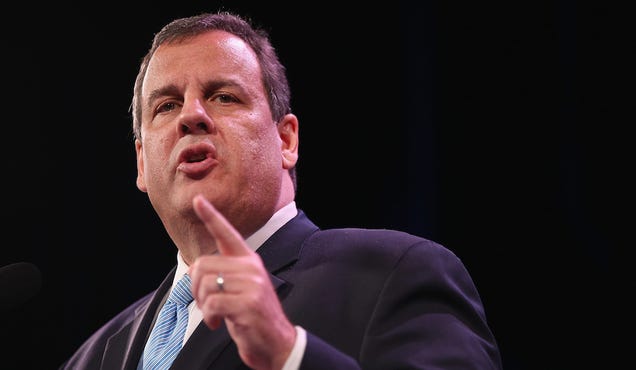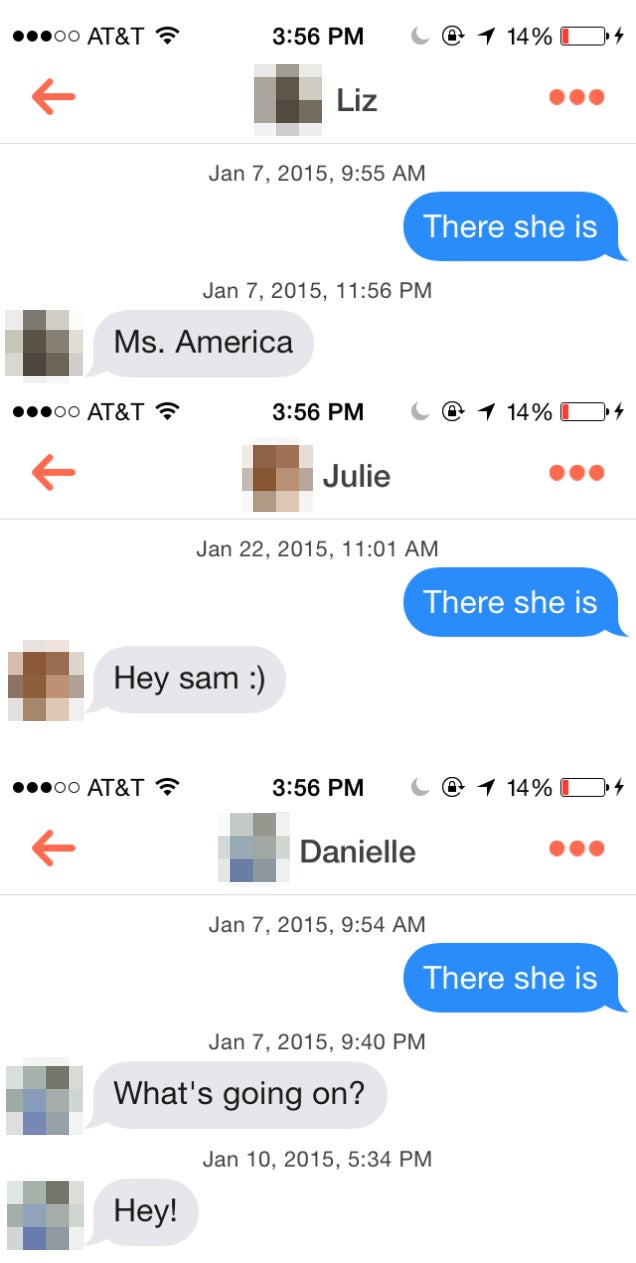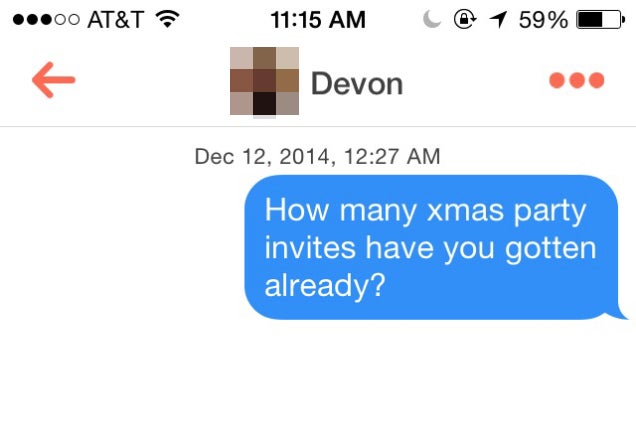
As long ago as it now seems, it was only this past July when Roger Goodell decided to
suspend Ray Rice for two games
"We will get our house in order first," he said, echoing a favored phrase of his favored political-messaging huckster
He almost surely had no understanding of the scope of what he had set out to do. His every action before that pledge—a history of leniency on players
But Goodell made that pledge, and going by public perception you could say he's had great success. The Super Bowl is upon us, and the league has seen glowing report after glowing report published about the anti-domestic violence advertisement that will air during the game. Any concerns about how the league handles players accused of abuse and what is being done to prevent it have been buried under self-important histrionics about the amount of air in footballs and Marshawn Lynch's dislike of talking to sports reporters. Goodell gave his annual pre-Super Bowl address, and the transcript said he muttered the phrase "domestic violence" exactly once.
Theatrics aside, what has the NFL really done about domestic violence? I looked into some of the league's most well-publicized initiatives, many announced back in September, to see how they hold up under scrutiny now that time has passed. What I found was a league that has, yes, done some good, but with underwhelming final results. The NFL has spent next to nothing by the standards of a league bringing in an estimated $10 billion every year, made some advertisements with a domestic-violence organization that seems mainly to serve as an image-making front for Madison Avenue brands, and turned critics into "consultants." The main emphasis has seemingly been on a power grab giving the league more control over players. The NFL has changed, but mainly in ways that promote its image, allow it to work with brands, and don't really do much to help anyone on the front lines of working with domestic-violence victims.
Donating Super Bowl air time for an advertisement
The NFL has gotten almost nothing but praise for its plan to air an anti-domestic violence advertisement during the Super Bowl. The ad itself is powerful and well-crafted, hinging on the story of a 911 dispatcher answering a call from a battered woman who must pretend she's ordering a pizza so she can make the call at all.
Let's talk about the word "donated," though, which is being used to describe how the ad came about. Much of the coverage is quick to point out that the airtime and the help of an expensive ad agency were donated by the NFL, but not everyone explains the details. There's more clarity in this report on the ad by the Wall Street Journal. Emphasis added is mine.
The league's ad agency created the spot at no charge and the NFL is donating some of its airtime in the Feb. 1 telecast on NBC, where ad time costs roughly $4.5 million for 30 seconds.
The donation comes from NFL's own advertising time—time it gets during the Super Bowl no matter what—which means this is essentially the league taking a brief reprieve from directly promoting itself. The agency that donated its time is the league's ad agency, Grey New York, which has plenty to gain from doing a favor for its wealthy patron. Leaving that aside, there's the greatness being attributed to the league's partner on the ad, a group dubbed No More. (The league only works with the biggest and the best, after all, and is surely doing so here, right?) If you hadn't heard of No More before it partnered with the NFL, though, you're hardly alone.
Partnering With No More
There are many organizations doing great and important work to prevent domestic violence and spread awareness of it. But the NFL, curiously, is using the power of its brand and of a Super Bowl audience of more than than 100 million to draw attention to No More, described by the New York Times as a "coalition among various groups combating domestic violence and sexual assault" with a staff of four part-time consultants and no full-time employees. Note that there's one word absent from the Times report and No More's website: nonprofit.
I'm not quite sure what No More is. It doesn't call itself a nonprofit, and nonprofit tracker GuideStar had no 990 forms for any groups with that specific name. There's not much information on No More's website itself. I searched for a mailing address, an office, or even a state it might be registered in but found nothing except "location: nationwide." The link to donate gives you a page listing other domestic violence groups. When I clicked on "who is behind no more," I hoped to finally find some people's names.

SO MANY BRANDS! The top nine "executive committee members" are almost all brands or, to be a bit more specific, the charitable arms created by brands in their attempts to appear socially conscious. The only exception is the Joyful Heart Foundation, started by Law and Order: SVU actress Mariska Hargitay. The brand-and-celebrity-free nonprofits don't start until No. 10. Also, aren't committees made up of people?
I scrolled down to the steering committee members and got a list of anti-domestic violence groups. The allies list also didn't produce any people either. Running through page after page after page didn't find me a single name of a person. Even the press releases lack the name of a No More spokesperson or No More contact info. Is this the domestic violence equivalent of The Human Fund? The Times story quotes one person from No More—director Virginia Witt. On her Linkedin page, she doesn't list No More as her job. It's under volunteer work.
The most concrete information available on No More comes from domain registry records, which show the nomore.org URL, which was purchased some time between Jan. 25 and April 11 of 2012, is owned by Fifth & Pacific, better known as Kate Spade. That's more than a little interesting for the way it directly ties together one of the brands for which the NFL's new partner in the fight against domestic-violence advertisement appears to be an image-laundering front and the marketing and crisis management specialist who was brought in when the league badly needed to clean up its tarnished image.
Bringing on consultants
When its domestic-violence problem first flared up, the NFL brought on three consultants to help: Lisa Friel, a former Manhattan sex crimes prosecutor; Rita Smith, who spent 21 years with the National Coalition Against Domestic Violence; and Jane Randel, previously the board chair of the Kate Spade & Company Foundation. Friel and Smith's qualifications are obvious; Randel's, as spelled out on her LinkedIn page, are equally so, but for different reasons.
Before heading up Kate Spade's foundation, Randel spent 22 years with the company, ending her tenure there as senior vice-president for corporate communications and brand services. Her LinkedIn page touts her skills in the areas of "reputation and crisis management," "corporate rebranding," and "cause marketing campaigns," as well as listing her as co-founder of No More. Two items in particular highlight the unique qualifications she brings to her present work:
Successfully managed multiple reputational issues, including reshaping the narrative for both the CEO and the corporate strategy after a tumultuous, multi-year turnaround.
[...]
Directed all communications around multiple critical issues ranging from alleged sweatshop labor to unionization campaigns to concerns from PETA, Greenpeace and other NGOs.
You can probably guess why of all the many worthy domestic-violence groups out there, the one now partnered with the NFL is the one that doesn't seem to actually exist and was co-founded by an NFL-employed corporate branding specialist who boasts about her experience fighting anti-sweatshop activists, labor unions, and NGOs and telling stories about all the good things the brands actually do.
Randel's LinkedIn, incidentally, lists her present position as a senior advisor, "Consulting with the NFL on domestic violence/sexual assault policy, protocol, programs." At least one of those programs seems to be working just fine.
Donating $25 million over five years to the National Domestic Violence Hotline
When not collaborating with the brands, the NFL has at various times touted initiatives meant to directly help people who directly work on domestic-violence issues. A $25 million donation to the National Domestic Violence Hotline was one of Goodell's splashier announcements, strategically followed by a visit to to the Austin-based hotline that reportedly left him in tears. The visit was followed a month later by a TMZ report that the hotline still hadn't received any money because of a holdup having to do with "modifying the language" in the agreement between the two groups, even though 20 more employees already had been hired.
This week, I asked the hotline if it had received some of the money, and spokeswoman Cameka Crawford told me that yes, they had—but she couldn't tell me how much, exactly. She could only confirm that the hotline had received "a portion of the funding." She added that the league also gave the hotline Microsoft Surface tablets. (Before you wonder why they didn't get iPads, remember that the Surface is
the official tablet of the NFL
Financially supporting the National Sexual Violence Resource Center
There was no media-saturated visit to the NSVRC, but director Karen Baker said the organization received $1 million from the NFL in the fall to support hotline services. The NSVRC then distributed the money to a sexual violence coalition in each state to support their hotline efforts. The group, she told me, also is "collaborating with the NFL to develop the most effective sexual violence prevention measures and services for victims."
Yes, $1 million to help victims of domestic violence is a good thing. Spread $1 million across 50 states and figure that's about $20,000 to each state, assuming it's all split evenly. I'm sure everyone appreciated it. But that figure, and whatever undisclosed amount was given to the national hotline, should be taken in context given the $10 billion the the NFL is estimated to bring in every year. Heck, it's less than 3 percent of Goodell's 2012 compensation, a hefty $44 million.
I asked Baker if the NFL had pledged any money to NSVRC in the future. Baker told me, "We're excited to be working with them on a plan but do not have the full details at this time."
Then there's what's completely missing from the NFL's response: a commitment to directly helping shelters for victims of domestic abuse. If one common reason people stay in abusive relationships is feeling like they have nowhere to turn, supporting the shelters that take them in is key. Sen. Richard Blumenthal, the Connecticut Democrat, said as much in a letter he sent to Goodell:
Although I am glad the NFL has recognized the necessity of addressing this issue, this amount is barely a fraction of the financial support needed by organizations that every day provide shelter, counseling, and education across the country. Compared with the $10 million per year that is spent on its Super Bowl halftime show – not to mention the $5 billion the NFL earns each year in television rights – this amount seems terribly insufficient. If the NFL is serious about its commitment to combatting domestic violence, it could contribute many times more. ...
The NFL's failure to pledge resources directly to shelters and other local service providers may be seen rightly by many survivor advocates as a mockery of any real commitment. Indeed, the NFL has a special obligation to support shelters and services provided locally in the areas that have invested financially in NFL teams.
Promising harsher punishments for players
There are few lines of work in which the words "I screwed up ..." are immediately followed by "... therefore you should give me more responsibility." That's Roger Goodell's
Earlier this month, an investigation revealed that the NFL's inquiry into what happened with Rice was little more
than one ex-cop hitting refresh on the Internet.
Former Manhattan sex crimes prosecutor
Lisa Friel, hired by the NFL as a domestic violence consultant, told ESPNw's Jane McManus that these independent investigations are a good thing and the players will be "better protected, just as the victims will be better protected." But none of that matters if that NFL keeps working with investigators like the one who oversaw the Rice investigation, who didn't even contact the casino
"I think the conversation that the NFL is having on the punitive side, all it does is further criminalize the players in the league," McPherson said. "It doesn't address the core issue of men's violence against women, which is the culture of masculinity and men that leads to misogyny and sexism and the overall notion that women are less than, which is very much a message that comes out of a lot of language in sport. And until we address those core issues, the problem will continue, and all the NFL is going to be creating [is] a criminal state in their league."
Training and workshops for league employees and players
Among its other initiatives, the NFL touts its investment in a one-hour program on domestic violence, which is being presented to each team. This isn't a bad thing, and yet I can't help but be nagged at by the usual take on office presentations: Who actually pays attention at them? A one-hour program is a start, but nothing more than that. Of course, that's not how how the league sees them, instead using the narrative of the meetings to further its own branding and public relations aims. The NFL's director of player engagement and education, Deana Garner, recounted a story to McManus about how one man, a team employee, told the room his mother had been killed by her husband, and how the room had filled with tears. Asked directly if the league's culture has changed, she said, "I believe it has."
Really? A league comprising thousands of men and women has already changed? Just like that? Because of some meetings? McManus follows with a different perspective.
One NFL player's wife, who asked not to be named, attended a family session and said she didn't think a presentation on one or two subjects would fix the problems in front of the league.
"Cleaning up NFL culture is about way more than the issue in front of us," she said.
Amen.
Go outside league circles, and the doubt about how much these sessions are helping is easy to find. Miko Grimes, in a long post-Pro Bowl Twitter rant,
I have friends that were beaten, thrown down stairs WHILE PREGNANT, guys arrested, & @nfl suspended them 1 FUCKING GAME! Now yall care? FOH
— Miko Grimes (@iHeartMiko) January 26, 2015
They asked helped it stay quiet bcuz its none of their business until Ray Rice clocked his now wife on camera. Then all of a sudden NOMORE?
— Miko Grimes (@iHeartMiko) January 26, 2015
I tweet for the wives and girlfriends of the popular players that cant say how they feel bcuz their bae has endorsements to protect.
— Miko Grimes (@iHeartMiko) January 27, 2015
I tweet for the wives & girlfriends that were physically abused by NFL players who were only suspended 1 game while she went to the ER.
— Miko Grimes (@iHeartMiko) January 27, 2015
Speaking to McManus, McPherson sounded a similarly skeptical note:
"I hate to be the cynic, but I don't think it has," McPherson said. "And the reason why I don't think it has is because we're still talking about Roger Goodell and the NFL and not Ray Rice punching Janay Palmer in the head, and that was OK for him to be back on the field. When I started doing this work 20 years ago, we were following the white Bronco, and everyone thought the domestic violence world was going to change. And it really hasn't."
So now what?
Critiquing any action taken to prevent domestic violence is tricky. It's a national crisis, the effects of which can be seen daily in courtrooms, shelters, schools, and jails everywhere in the country, and any help to stop it is welcome. That doesn't mean, though, that we have to hold the NFL to a standard that says that because any help is good, it's therefore good enough. The NFL is attempting to buy its way out of an immense public relations disaster here. There's no reason it should be allowed to do so on the cheap.
Domestic violence involves power and control and the ways abusers use them to keep victims in line. As I watch the NFL throw around its money and use a problem of its own making as a way to grab even more power, I can't help but get a horrible feeling in the pit of my stomach. Stay with us, Goodell implores, because he's changed, and the NFL has changed, and things will be better next time. I've heard those lines before. It almost never ends well
Photo by Mike Lawrie/Getty Images





